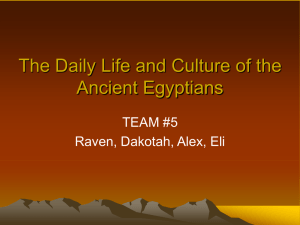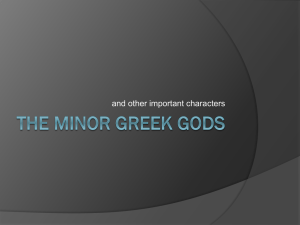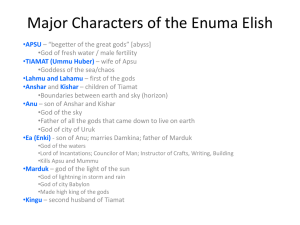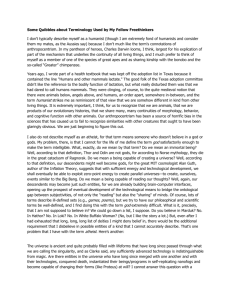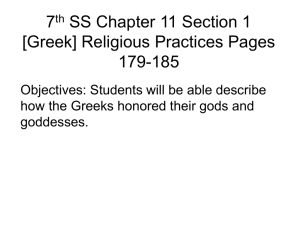Platsis Symposium Student Essay
advertisement
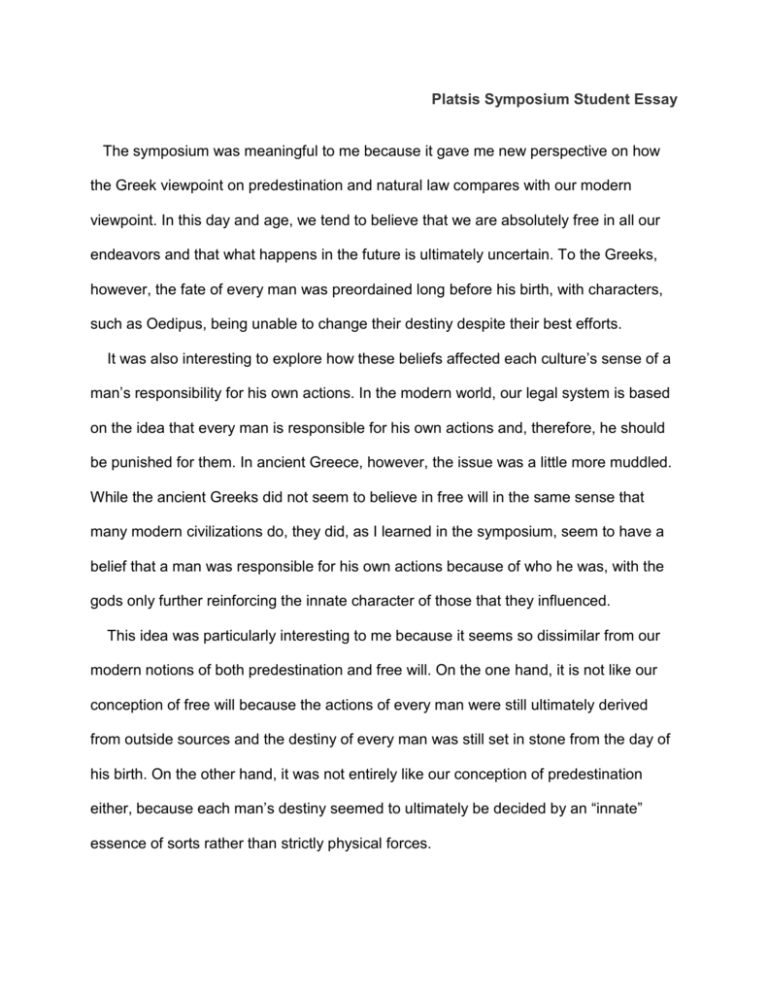
Platsis Symposium Student Essay The symposium was meaningful to me because it gave me new perspective on how the Greek viewpoint on predestination and natural law compares with our modern viewpoint. In this day and age, we tend to believe that we are absolutely free in all our endeavors and that what happens in the future is ultimately uncertain. To the Greeks, however, the fate of every man was preordained long before his birth, with characters, such as Oedipus, being unable to change their destiny despite their best efforts. It was also interesting to explore how these beliefs affected each culture’s sense of a man’s responsibility for his own actions. In the modern world, our legal system is based on the idea that every man is responsible for his own actions and, therefore, he should be punished for them. In ancient Greece, however, the issue was a little more muddled. While the ancient Greeks did not seem to believe in free will in the same sense that many modern civilizations do, they did, as I learned in the symposium, seem to have a belief that a man was responsible for his own actions because of who he was, with the gods only further reinforcing the innate character of those that they influenced. This idea was particularly interesting to me because it seems so dissimilar from our modern notions of both predestination and free will. On the one hand, it is not like our conception of free will because the actions of every man were still ultimately derived from outside sources and the destiny of every man was still set in stone from the day of his birth. On the other hand, it was not entirely like our conception of predestination either, because each man’s destiny seemed to ultimately be decided by an “innate” essence of sorts rather than strictly physical forces. While I was not previously familiar with this concept of gods and nature reinforcing the innate identity of a man, I found it to be a particularly interesting perspective due to some of the unique implications. First, there is the interesting issue of the role of the gods. How is it that their intervention could only serve to reinforce the inherent nature of the mortal they were targeting? Were the gods only able to intervene when it reinforced a man’s current character or were they able to do otherwise but were themselves predestined to act in such a fashion? Similarly, could the gods themselves be influenced by other gods or mortals in such a fashion? There were certainly a few cases of gods being influenced in Greek mythology, such as Thetis convincing Zeus to help Achilles in the Iliad. Were the gods in those stories being affected by the same kind of “double motivation” that affected mortals or were gods influenced in a different fashion altogether? While I definitely did learn several interesting things from the symposium, ultimately it was more meaningful to me for the questions that it provoked rather than in the facts that it revealed. Bibliography Homer, and Stanley Lombardo. Iliad. Indianapolis: Hackett Pub., 1997. Print. Weinreb, L. (September 2012). Classical Greek Origins of the Doctrine of Natural Law. Presentation at The Platsis Symposium, Ann Arbor, MI.


